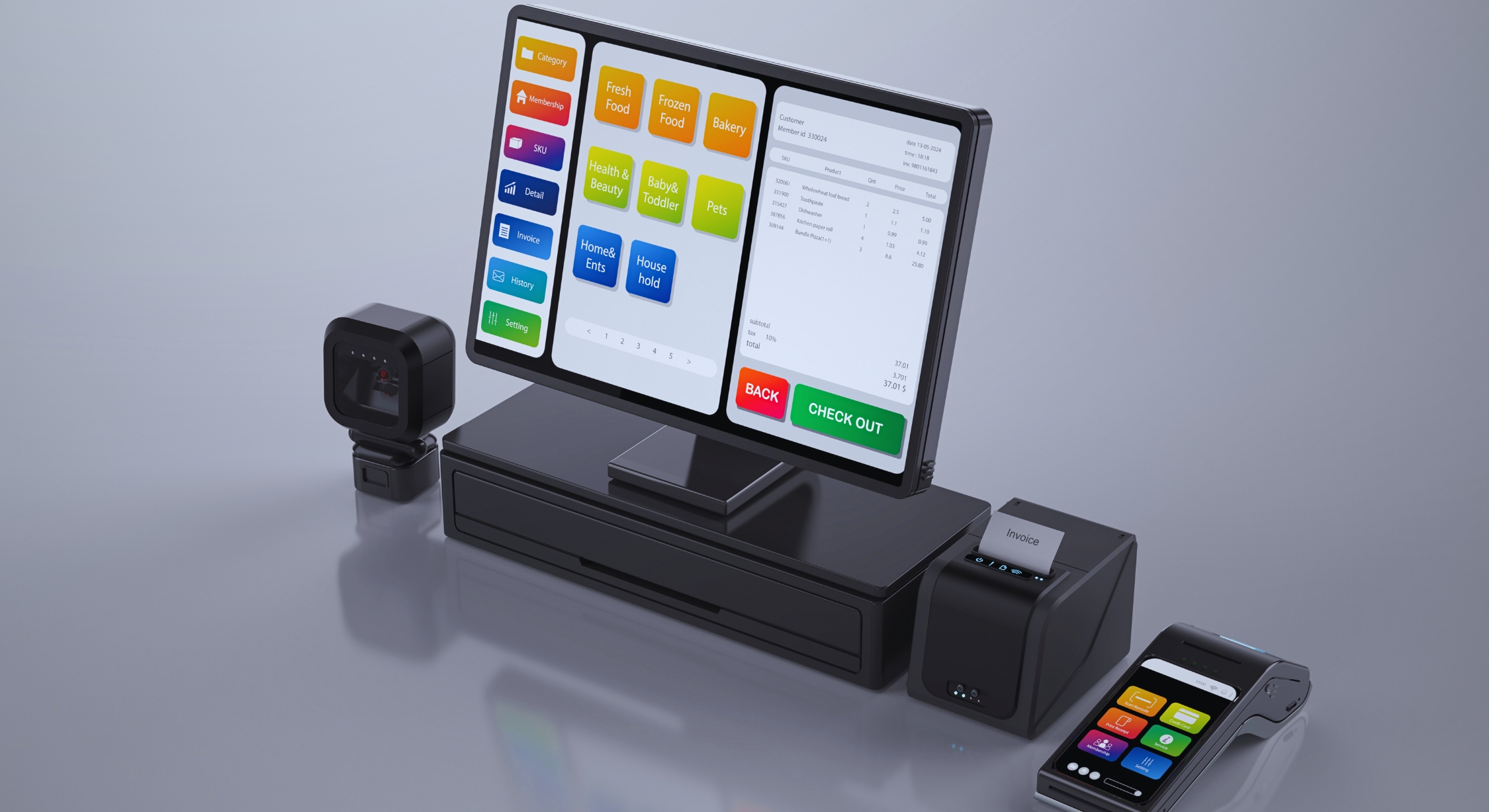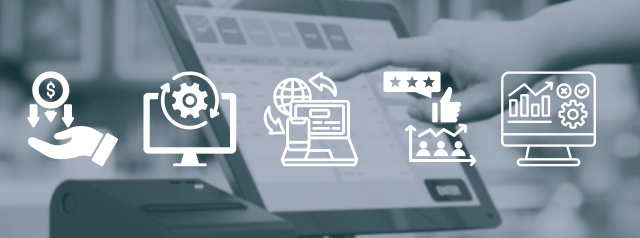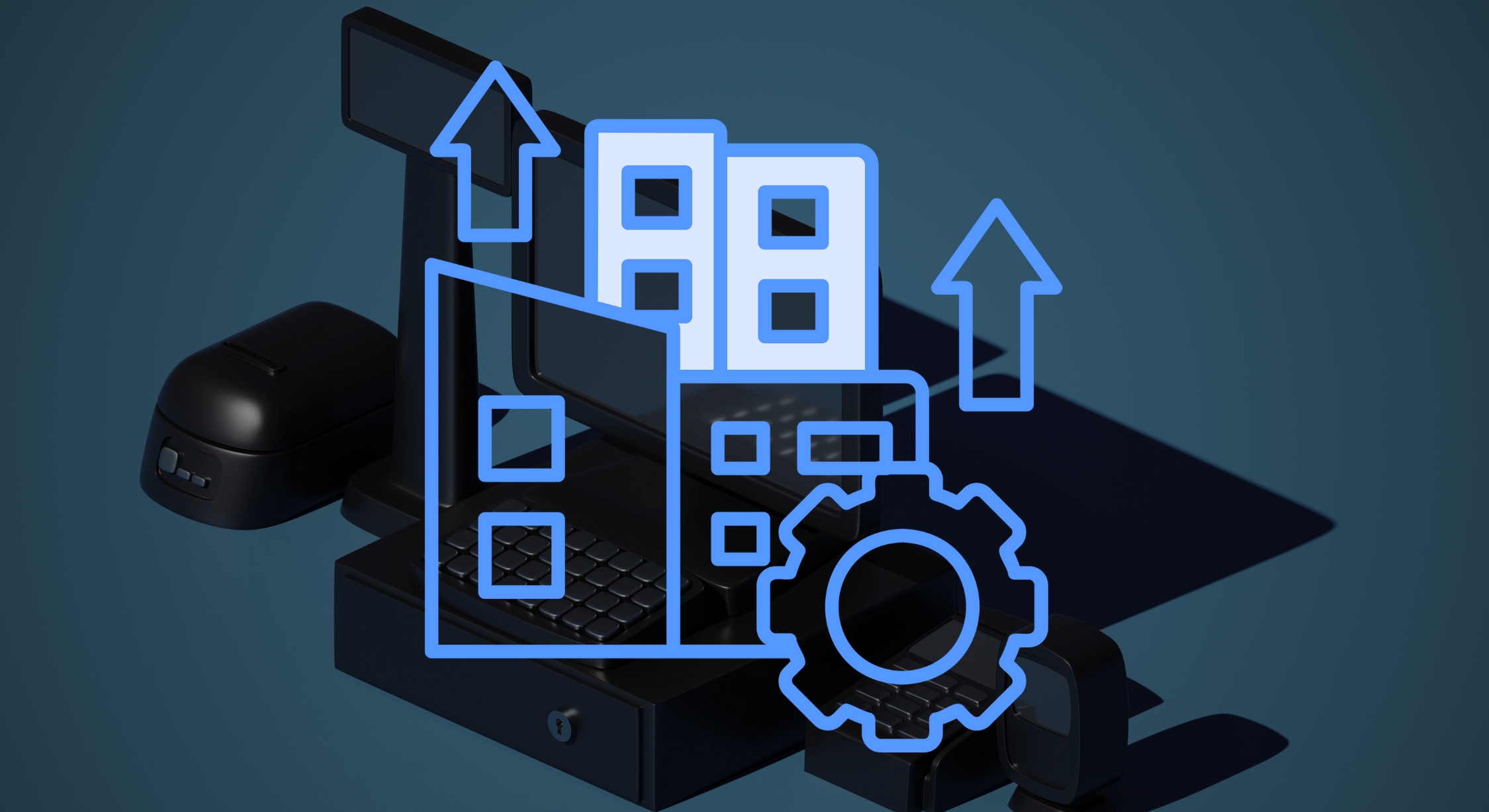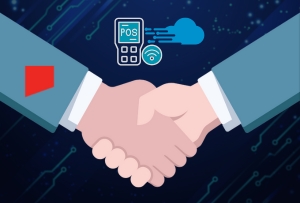Experion combines breakthrough cloud technology with industry insight, transforming how businesses manage their sales operations. The retail industry is seeing a strong shift toward cloud based POS systems as businesses prioritize flexibility and digital connectivity. This trend is fueled by the growing demand for efficient, scalable solutions that support seamless integrations with existing software, allowing for smoother operations across locations. As more retailers adopt this approach, cloud POS systems are setting the standard for streamlined management, enhanced customer experience, and adaptability in an evolving market landscape.
Why a Reliable POS System Matters?
A reliable and robust POS (Point of Sale) system is crucial for businesses to streamline operations, improve customer service, and boost sales. By using POS integration software, companies can easily connect with other business tools, enhancing operational efficiency and enabling POS integrations that support inventory, CRM, and accounting.
Key benefits include:
- Efficient Sales Processing: Quickly and accurately process transactions.
- Inventory Management: Maintain real-time inventory levels to avoid stockouts.
- Customer Relationship Management (CRM): Build customer loyalty through personalized experiences.
- Data-Driven Insights: Utilize sales data to make informed business decisions.
- Scalability: Effortlessly scale with the demands of business growth and change.
What is a Cloud POS System?

A Cloud POS System is a cutting-edge solution for managing sales transactions using cloud-based technology. Unlike the old systems, a cloud-based POS operates on remote servers, so you can access it from any device with internet. This flexibility is a game-changer for businesses that want smooth POS integration across locations. Cloud POS systems make it easy to manage operations, cut IT costs, and offer a better customer experience—perfect for today’s fast-paced business world.
Basic Features of a Cloud POS System
- Sales Processing: Efficiently handle sales transactions, including payments and returns.
- Inventory Management: Track inventory levels, manage stock, and generate low-stock alerts.
- Customer Relationship Management (CRM): Store customer information, track purchase history, and implement loyalty programs.
- Reporting and Analytics: Generate detailed reports on sales, inventory, and customer behavior.
- Payment Processing: Enable transactions through credit cards, debit cards, and mobile payment solutions.
- Employee Management: Manage employee schedules, track time and attendance, and control access to the system.
How Cloud POS Differs from Traditional POS Systems
| Feature | Cloud POS System | Traditional POS System |
| Access | Accessible from any device with internet | Access is limited to on-site systems |
| Data Updates | Real-time updates across all locations | Updates may require manual syncing |
| Hardware Requirements | No specific hardware needed; works on standard devices | Requires specific on-site hardware |
| Scalability | Easily scalable across locations | Limited scalability; often location-bound |
| Maintenance & Updates | Automatic updates managed by provider | Manual updates needed; maintenance on-site |
| IT & Support Costs | Lower costs; minimal IT support required | Higher costs due to hardware and IT maintenance |
| Data Security | High-level security protocols managed by provider | Security handled on-site; potentially less robust |
| Flexibility | Remote access supports multi-location management | Limited to physical locations; lacks remote access |
Types of Businesses Benefiting from Cloud POS
- Retail Stores: From small boutiques to large department stores, Cloud POS systems streamline operations and improve customer experiences.
- Restaurants: Cloud POS systems help manage table reservations, food orders, and payments efficiently.
- Salons and Spas: Cloud POS systems can track appointments, manage inventory, and process payments seamlessly.
- Mobile Businesses: Cloud POS systems enable businesses to operate on the go, such as food trucks and pop-up shops.
Key Features of a Cloud POS System
Real-Time Data Access and Synchronization
A Cloud POS system enables instant data updates across devices, with all sales, inventory, and customer information stored in a centralized cloud database. Changes made at one location are immediately reflected across all connected devices, allowing managers and employees to access and monitor the system remotely from any internet-enabled device.
Multi-Location Management
With a unified dashboard, managing multiple store locations becomes straightforward. Inventory levels are synchronized across all sites, and consolidated reports provide a comprehensive overview of business performance, making multi-location oversight efficient and organized.
Seamless Integration with Business Tools
Cloud POS systems easily integrate with essential tools, including inventory management for optimal stock levels, CRM systems for customer relationship insights, and accounting software for streamlined financial processes. Integration with payment gateways also offers flexibility in accepting multiple payment methods.
Robust Security Features
Security is built-in, with data encryption to protect sensitive information, regular automated backups, and role-based access controls to limit access to specific information. Regular security audits help identify and address vulnerabilities, maintaining high standards of data security.
Scalability and Flexibility
Designed to grow with your business, Cloud POS systems are adaptable to changing needs. They offer customizable workflows and reporting to fit specific business requirements, and continuous updates ensure the system remains future-proof and equipped with the latest technology.
Benefits of Using a Cloud POS System

- Cost-Effectiveness
Imagine you’re setting up a new store. With a cloud-based POS, there’s no need for an expensive setup—no major investments in bulky hardware or software licenses. Instead, you start with a subscription model, spreading out the costs monthly or annually. The result? Lower initial expenses and your budget stays intact for other essentials like marketing or store enhancements.
Outcome: Start-up costs are reduced, making it easier for new businesses to open up or expand without financial strain.
- Easy Updates and Maintenance
Picture your team seamlessly working without interruptions, even as software updates roll out automatically in the background. The cloud provider handles these updates and security patches, so you don’t need a dedicated IT person to maintain and troubleshoot. You save on IT expenses and avoid downtime, keeping daily operations running smoothly.
Outcome: Minimal IT involvement means fewer disruptions, continuous system improvements, and a hassle-free experience for your staff and customers.
- Mobility and Remote Access
Running multiple locations? With cloud access, you can check sales and inventory from your laptop while you’re away, or even approve a new order on your phone. This freedom means you can be present across locations without physically being there, streamlining management.
Outcome: Enhanced flexibility and productivity, as you manage your business from anywhere, ensuring operations stay efficient and timely.
- Improved Customer Experience
Imagine a busy Saturday—your team handles checkouts swiftly, reducing wait times and making returns hassle-free. Having customer data on hand lets staff suggest products based on past purchases, adding a personal touch customers appreciate and remember.
Outcome: Happier customers, smoother checkouts, and an experience that boosts satisfaction and brings them back for more.
- Data-Driven Decision-Making
You have instant insights into which products are trending and which locations need stock replenishments. Real-time analytics allow you to adjust store promotions on the fly, optimize inventory, and identify top-performing employees. This data empowers you to make informed decisions, maximizing sales and profitability.
Outcome: Proactive, informed choices that increase sales, enhance customer satisfaction, and streamline operations for higher profitability.
How Cloud POS Systems Enhance Business Operations?

Inventory Management and Stock Control
- Real-time Inventory Tracking: Monitor stock levels across all locations in real-time.
- Automated Reordering: Set up automatic reordering points to avoid stockouts and overstocking.
- Barcode Scanning: Quickly scan products to expedite checkout and inventory updates.
Sales Tracking and Reporting
- Detailed Sales Reports: Generate detailed reports on daily, weekly, and monthly sales.
- Product Performance Analysis: Analyze product performance to identify best-sellers and slow-moving items.
- Sales Forecasting: Leverage past data to forecast upcoming sales trends.
Employee Performance Monitoring
- Time and Attendance Tracking: Oversee employee work hours and assess productivity levels.
- Sales Performance Analysis: Track individual employee sales performance to identify top performers.
- Access Controls: Implement role-based access controls to limit access to sensitive areas of the POS system.
Customer Relationship Management and Loyalty Programs
- Customer Profiles: Create detailed customer profiles, including purchase history and preferences.
- Loyalty Programs: Set up loyalty programs to incentivize returning customers.
- Personalized Marketing: Send targeted marketing campaigns based on customer behavior.
Enhanced Checkout Process
- Contactless Payments: Accept contactless payments like Apple Pay and Google Pay for faster and safer transactions.
- Mobile POS: Process sales on mobile devices, enabling flexibility and omnichannel retailing.
- Self-Checkout: Empower customers to scan and pay for their own items, reducing wait times.
With efficient POS integration, businesses can connect seamlessly to essential tools, enhancing functionality across sales, inventory, and customer management. Experion’s approach to POS system integration enables smooth connectivity across your business operations, driving efficiency and growth.
Challenges and Considerations for Cloud POS System
Internet Dependency
- Stable Connection: A reliable internet connection is crucial for the smooth operation of a Cloud POS system.
- Network Outages: Network outages can disrupt sales and hinder business operations.
- Backup Plans: Implementing backup plans, such as offline mode capabilities or mobile POS devices, can mitigate the impact of internet disruptions.
Data Privacy and Compliance
- Data Security: Safeguarding sensitive customer and business data is essential.”
- Compliance: Adhering to data privacy regulations like GDPR and CCPA is essential.
- Secure Cloud Providers: Choosing a reputable cloud provider with robust security measures is crucial.
Customization Limitations
- Pre-built Templates: Cloud POS systems may offer limited customization options compared to on-premise solutions.
- Unique Business Needs: Businesses with highly specific needs may require additional development or integration.
- Flexibility and Scalability: Ensure the chosen Cloud POS system can adapt to future business growth and evolving needs.
Staff Training and Adaptation
- Learning Curve: Staff may need time to adapt to a new POS system and its features.
- Training and Support: Provide adequate training and ongoing support to minimize disruptions.
- User-Friendly Interface: A user-friendly interface can accelerate the learning process and reduce training time.
Choosing the Right Cloud POS System
Evaluating Business Needs and Budget
- Identify Key Requirements: Determine the specific features and functionalities your business needs, such as inventory management, employee management, and customer loyalty programs.
- Assess Budget: Consider the initial setup costs, monthly subscription fees, and any additional hardware or software costs.
Features to Prioritize
- Inventory Management: Robust inventory tracking, automated reordering, and barcode scanning.
- Mobility: Mobile POS capabilities for flexibility and on-the-go sales.
- Integrations: Seamless integration with other business tools like accounting, CRM, and payment gateways.
Security and Support Services
- Data Security: Strong encryption, regular security audits, and data backup procedures.
- Reliable Support: 24/7 customer support and timely issue resolution.
Popular Cloud POS Providers and Comparisons
- Square: Known for its ease of use and mobile POS capabilities.
- Lightspeed: A comprehensive POS solution with advanced features for retail and restaurant businesses.
- Toast: A popular choice for restaurants, offering features like table management and kitchen display systems.
- Clover: A versatile POS system that can be customized to fit various business needs.
When comparing providers, consider the following factors:
- User-friendliness: How simple is it to learn and navigate the system?
- Customization options: Can the system be tailored to your specific business needs?
- Scalability: Can the system adapt as your business expands?
- Pricing: Are the pricing plans transparent and affordable?
- Customer support: What is the responsiveness and effectiveness of the customer support team?
Future Trends in Cloud POS System

- AI and Machine Learning Integrations
- Personalized Recommendations: AI-powered systems can analyze customer purchase history and preferences to offer personalized product recommendations.
- Automated Inventory Management: Machine learning algorithms can predict demand patterns and optimize inventory levels, reducing stockouts and overstock.
- Predictive Analytics: AI can analyze historical data to forecast future sales trends, enabling businesses to make informed decisions about inventory, staffing, and marketing.
- Increased Use of Mobile POS Devices
- Omnichannel Retail: Mobile POS devices empower businesses to sell anywhere, from the sales floor to pop-up shops.
- Enhanced Customer Experience: Mobile POS enables faster checkout processes and personalized service.
- Inventory Management on the Go: Real-time inventory updates and stock checks can be performed using mobile devices.
- Cloud POS and IoT Integration
- Smart Inventory Management: IoT sensors can track inventory levels and trigger automatic reordering when stock is low.
- Real-time Customer Insights: IoT devices can collect data on customer behavior, such as dwell time and product interactions, to inform marketing strategies.
- Predictive Maintenance: IoT sensors can monitor the health of POS hardware and predict potential failures, reducing downtime.
- Growing Importance of Data Analytics for Decision-Making
Advanced Analytics: Unlocking the Power of Data
Cloud POS systems are becoming increasingly sophisticated, capable of generating detailed reports on a wide range of metrics, including:
- Sales Performance: Analyze sales trends, identify top-selling products, and track seasonal variations.
- Inventory Management: Monitor inventory levels, track stock turnover rates, and optimize order quantities.
- Customer Behavior: Gain insights into customer preferences, purchase habits, and loyalty patterns.
- Employee Performance: Evaluate employee productivity, sales performance, and customer satisfaction ratings.
Data-Driven Insights: Making Informed Decisions
Utilizing data analytics enables businesses to make strategic decisions that enhance growth and profitability. Some key applications include:
- Personalized Marketing: Tailor marketing campaigns to specific customer segments based on their preferences and purchase history.
- Optimized Pricing Strategies: Analyze price sensitivity and competitor pricing to optimize pricing strategies.
- Improved Inventory Management: Reduce stockouts and overstock by forecasting demand and optimizing inventory levels.
- Enhanced Customer Experience: Use customer data to identify opportunities for improving customer service and loyalty programs.
Predictive Forecasting: Anticipating Future Trends
Predictive analytics, powered by machine learning algorithms, enables businesses to forecast future trends and make proactive decisions. Key benefits include:
- Forecasting Sales: Predict future sales volumes to optimize staffing and inventory levels.
- Identifying Trends: Detect emerging trends and opportunities to capitalize on them.
- Risk Mitigation: Anticipate potential risks, such as supply chain disruptions or economic downturns, and develop contingency plans.
As technology advances, Cloud POS systems will only become smarter, giving businesses more flexibility, efficiency, and powerful insights. Embracing these trends now helps businesses stay ahead and succeed in today’s digital landscape.
How Experion Helps You with Cloud POS System

Experion’s Cloud POS systems are designed to transform retail operations with a blend of innovation and ease. By using Experion’s cloud expertise, businesses gain real-time data access, advanced security, and effortless management from any location—enabling you to stay connected and efficient wherever you are. Our solutions scale with your business growth, ensuring long-term adaptability and seamless integration with essential business tools. With Experion, you’re not just adopting technology; you’re embracing a future of streamlined operations and elevated customer experiences.
Conclusion
Transitioning to a Cloud POS system equips businesses with the agility and resources they need to thrive in a competitive landscape, ensuring operations are efficient, scalable, and ready to meet the demands of modern commerce.
For retail and service-oriented businesses, the benefits extend beyond just transaction management—Cloud POS systems offer data-driven insights that can shape smarter decisions and foster more personalized customer interactions. The added flexibility, combined with lower IT overhead and maintenance costs, makes Cloud POS systems not only a cost-effective choice but a future-proof investment.
Key Takeaways
- Real-Time Data Access: Access live sales, inventory, and customer data from anywhere.
- Enhanced Customer Experience: Faster checkout and personalized service options.
- Easy Integration: Connect seamlessly with inventory, CRM, and accounting tools.
- Remote Management: Can manage multiple locations from a single platform.
- Cost Savings: Lower startup costs with a subscription model.
- Automatic Updates: Regular updates without IT intervention.
- Scalability: Easily adapts to business growth.
- Robust Security: Data encryption and access controls protect information.
- Data-Driven Insights: Analytics improve decision-making.
- Future-Proof: Adapts to technology advancements and changing business needs.
Partner with Experion and embrace a future-ready POS solution built to evolve with your business.

